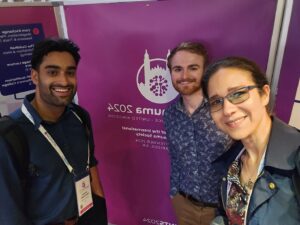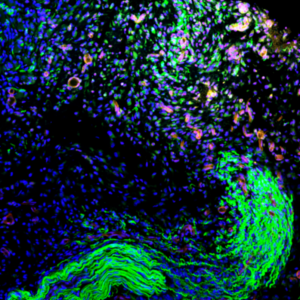As a result of evolution under the selective pressure of early-stage pandemic therapeutics and vaccines, plus natural immunity, severe acute respiratory syndrome coronavirus 2 (SARS-CoV-2) is becoming endemic. Concerns rise as SARS-CoV-2 variants continue to emerge with resistance to currently available monoclonal antibody therapeutics. Recent research led at Dana-Farber Cancer Institute and with direct involvement of the VIC team at Mass General Hospital, investigates the potential in developing a decoy drug therapy that may be capable of treating common and arising variants of SARS-COV-2. The decoy drug uses angiotensin-converting enzyme 2 (ACE2) decoy receptors, previously proposed as a therapeutic for COVID-19. These ACE2 decoy receptors engage the receptor binding domain of the viral S protein and outcompete human cell-surface viral binding, effectively neutralizing viral infection. Also, as the viral binding domain of the ACE2 decoy is identical to cell-surface ACE2, resistant variants are not likely to emerge as any mutations that reduce affinity of the virus for the decoy reduces viral infectivity. Research findings provide new insight to ACE2 decoy functionality and indicate potential in further development as a therapeutic for ACE2-dependent coronaviruses.
Optimized ACE2 decoys neutralize antibody-resistant SARS-CoV-2 variants through functional receptor mimicry and treat infection in vivo





